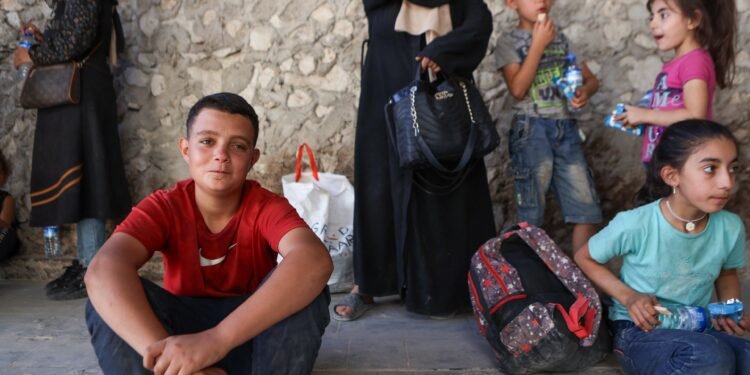Al-Bara, Syria – Musa Baghdadi paid $6,000 for the privilege of exchanging one bombardment for another. “I paid to escape the shelling in Lebanon to reach my village, which is also under bombardment by Assad’s army,” he tells media at his modest, one-storey home in al-Bara, western Idlib.
The little house has not fared well in the 12 years since the Baghdadi family fled the Syrian regime to take refuge in Lebanon. It currently has no windows – all will need to be replaced – and has suffered significant damage from shelling by al-Assad regime forces. It’s not as bad as many of Baghdadi’s neighbours have suffered, though – many houses nearby were destroyed.
Baghdadi, 64, is just one of more than a quarter of a million Syrians believed to have returned to Syria since the full-blown Israeli assault on Lebanon began last month. The precise number has been placed at 253,284 by local media reports.
According to the Syrian Observatory for Human Rights (SOHR), based in London, the number of Syrian refugees killed in Lebanon as a result of the ongoing and intense Israeli escalation on Lebanese territory since September 21 has now reached 176, including 33 women and 46 children.
So, after 12 years in Lebanon, Baghdadi returned with his wife and four grandchildren, aged 11 to 14, to their home village of al-Bara, located near the front lines of Syrian regime forces. The children’s father – Baghdadi’s son – was killed in 2012 when their home came under bombardment, and their mother has since remarried and remained in Syria.
The journey home from Lebanon was far from an easy one.
Baghdadi had already taken his family away from their adopted home in al-Duwayr, a village in Nabatieh in southern Lebanon when the Israeli bombardment of southern Lebanon began in full force on September 21. The town had already come under fire by the Israeli army on August 23 during the near-daily exchanges of fire between Israel and Hezbollah across the border since Israel’s war on Gaza began in October last year.
The family headed first to the village of Ghazieh, south of Sidon, about 30km (18.5 miles) away. That first night, they were forced to sleep on the pavement of a street in Sidon because the traffic was so congested by people fleeing al-Duwayr that they could not move on.
“The next day, we went to a mountain near Sidon and rented a house for $350 for one week. It had no water or electricity, but it was still better than staying on the street,” Baghdadi says.









 United Arab Emirates Dirham Exchange Rate
United Arab Emirates Dirham Exchange Rate